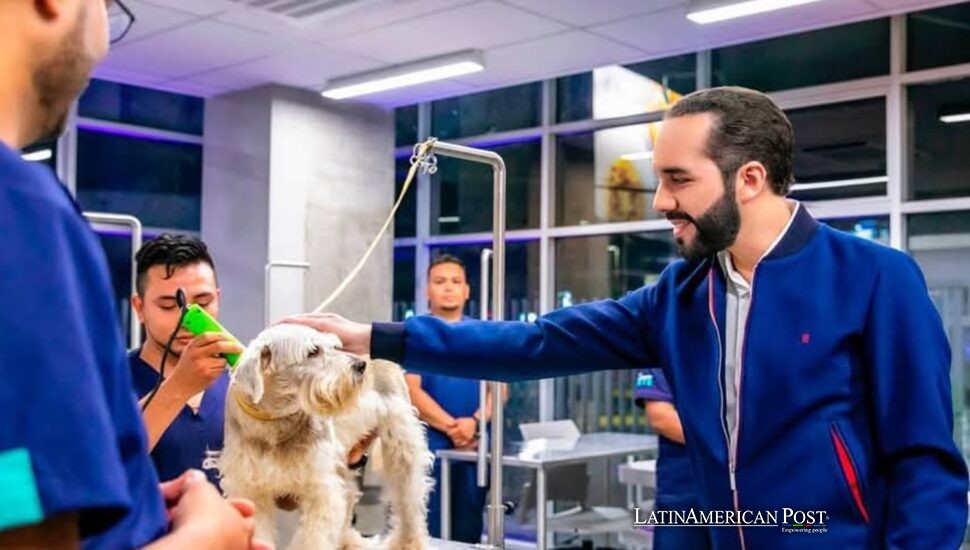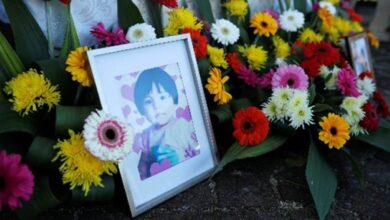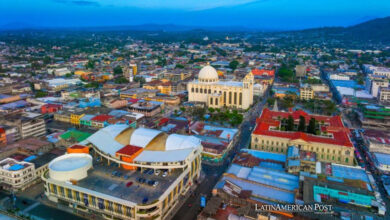El Salvador’s Bukele Swaps Iron Fist for Open Palm in a New Crusade: Saving Stray Animals

After three years of ruling with an iron fist, President Nayib Bukele has chosen a softer battlefield. His new war isn’t against gangs but stray dogs and cats. He’s promising compassion, global partnerships, and a model that could redefine animal welfare across Latin America.
From Iron Fist to Open Palm
The post was as unexpected as it was deliberate. “Thousands of dogs and cats live on our streets. We want to change that, but without cruelty,” Bukele wrote on X (formerly Twitter) in early October. “We have the financial resources, but we seek expert partners to make it a model for Latin America. Who wants to come and help?“
This is the same president who declared a state of emergency, jailed over 70,000 people, and rewired El Salvador’s image from gang capital to fortress state. But now, the man who thrives on spectacle and slogans has turned to tenderness.
For anyone who’s walked through San Salvador’s markets, the need is real. Packs of dogs nap under food stalls, scavenge through trash, and dart through traffic. Abandoned cats crowd alleys. Volunteers and underfunded shelters have been fighting this quiet war for years—alone.
Bukele knows how to spot a stage. As the AP has reported, he’s a leader who likes solutions that can be filmed: gleaming prisons, Bitcoin ATMs, and now perhaps glossy adoption fairs and sterilization drives. But he also adopted a street dog, Cyan, while mayor of San Salvador, and those who’ve met him say his empathy for animals is genuine.
The challenge is whether that empathy translates into a system that works when the cameras are no longer present. In a country where compassion is often political theater, El Salvador’s strays could become the president’s next prop—or his chance to prove care can be policy.
The Promise and the Price of a Showcase
The government already has a solid foundation to build on. In 2021, the Bukele-controlled Congress criminalized animal abuse, imposing prison terms of up to four years. The following year, the government opened Chivo Pets, a state-run veterinary hospital that treats animals for a symbolic 25 cents—or its Bitcoin equivalent, as reported by the AP.
Animal advocates welcomed both moves but warned that laws and hospitals are just the surface. “We need to change this bad culture of abandoning and getting rid of animals because they are living beings,” said Rafaela Pérez, founder of Good Fortune Rescue in Zacamil, to the AP. “The cases we see on social media are minimal compared to those that really exist.“
What El Salvador still lacks is the hard, daily work that turns goodwill into results: sterilization campaigns, vaccination drives, and education programs that shift behavior at the community level. None of that makes for glamorous photo ops. It’s unglamorous logistics—trucks, scalpels, spreadsheets.
And it’s expensive. Bukele claims El Salvador “has the resources,” but the country is deeply in debt and recently negotiated a $1.4 billion loan with the IMF, the AP reported. For some, the idea of financing animal welfare programs while leaning on foreign credit feels like a contradiction.
That tension is why rescuers like Patricia Madrid, who runs Fundación Gratitud in Salcoatitán, want collaboration—not co-optation. “We’ve struggled to keep up,” she told the AP. “We’d like to work together with the government to change that.“
Madrid’s wish—”together”—is the blueprint. If Bukele wants a model for the region, he must fund and empower the existing network: the grassroots shelters, the volunteer veterinarians, and the teachers who incorporate humane lessons into their classrooms. A real model is measured not in buildings or posts but in sterilizations completed, diseases prevented, and cruelty reduced.
Civil Society Knows the Ground Truth
The people who rescue animals in El Salvador know the reality Bukele’s posts only hint at. They know that abandonment often starts with poverty, eviction, or migration. They understand that a dog left behind is usually a symptom of something more profound—an economy stretched to its limits, a family forced to make a difficult choice.
That’s why the best starting point isn’t branding but basics: spay and neuter, scale it nationwide. Then stabilize the animals already on the street with vaccines and food. Support low-income families willing to adopt. Train and hire vet technicians from rural areas, turning compassion into employment.
This kind of plan isn’t new—it’s what countries like Costa Rica and Chile have done for years. The difference is scale and structure. If the Salvadoran government truly commits to working with NGOs, its model could redefine how the region views animal welfare—not as charity, but as a fundamental infrastructure.
When Thailand-based influencer Niall Harbison replied to Bukele’s tweet—”I would love to help; I’ll get on a plane,” the president shot back, “Let’s do it.” (AP). His enthusiasm drew headlines, but animal advocates are wary. International star power can raise funds, but it can also overshadow local priorities and concerns. As Pérez said to the AP, “We don’t need fame—we need help.“
The president’s challenge is to ensure this initiative doesn’t become another PR stage. It should buy more vaccines, not more murals; fund sterilization vans in Chalatenango and Usulután, not just photo shoots in San Salvador.
What a Humane Model Must Prove
If Bukele wants this project to stand as a “model for Latin America,” it must clear four tests.
First, it can’t be a distraction. Critics see irony in a president accused of violating human rights now championing animal rights. The crackdown on gangs brought peace—but at the price of due process. A credible animal welfare plan can’t erase that record; it can, however, show whether a government built on control can also learn care.
Second, it must outlast the hype. Latin America is full of abandoned shelters that once shone brightly for a year and then fell into disrepair. The Chivo Pets hospital is impressive—but it can’t be a one-off. If this effort is serious, it will appear as a recurring line in the national budget, not a photo caption.
Third, it must share power. Volunteers like Madrid and Pérez have carried this cause for decades. Now they need funding, not supervision. The government can set standards and provide training—but it should let civil society lead.
Finally, it must make compassion measurable. Publish quarterly reports: how many animals sterilized, how many vaccinated, how many adopted. Tie policy to transparency, not sentiment.
Bukele’s post—”Who wants to come and help?”—was both invitation and provocation. The real question is whether he’s ready to listen to those who’ve been helping all along.
Also Read: Columbus Without the Myths: A Stubborn Genius Who Miscalculated the World
If he builds a system that saves lives without spectacle, El Salvador could become the first Latin American nation to prove that compassion, done right, is governance—not theater. And maybe, for once, the president known for his iron fist will be remembered for something gentler: an open hand that finally stayed open.





